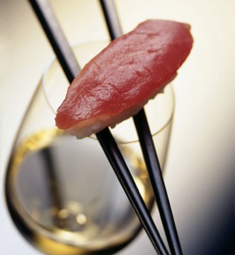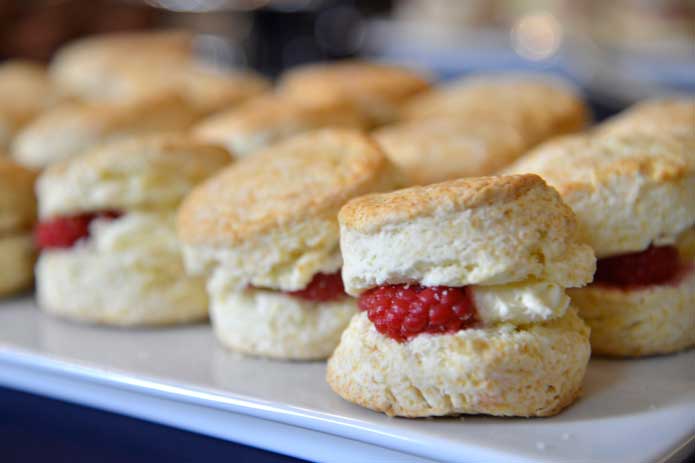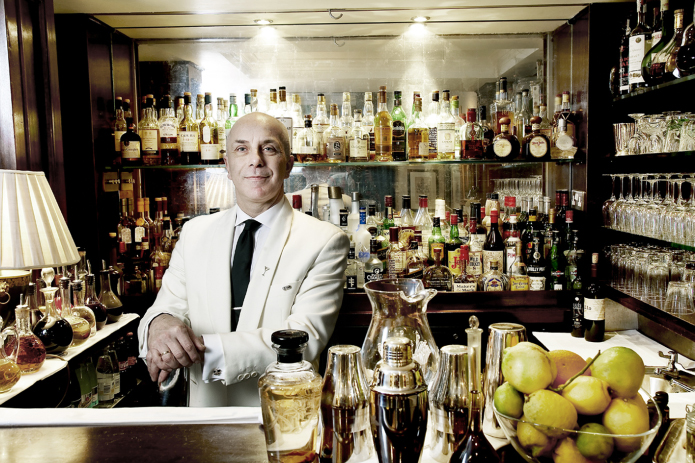Despite the rising popularity of home-grown craft beers and some impressive new innovations when it comes to sake and other spirits, Japanese drinkers have a reputation for being a fairly conservative bunch. They will still usually buy one of the ubiquitous big four brands of domestic beer, they largely believe that only French wine will impress their guests, and Scotch has to be a single malt bearing a label that can be found everywhere from Tokyo to Timbuktu.
Not so, say a new generation of British brewers and distillers, keen to emphasise that gin is incredibly hip around the world right now, that frozen cocktails can come in pouches, that a bottle of 9.3% Steamin Monk knocks your generic lager into a cocked hat, and that blended whisky really can be quite good.
To put their case, British manufacturers of alcoholic drinks were much in evidence at this year’s Foodex, which was held in mid-March at the Makuhari Messe international convention complex near Tokyo. That was the result of a conscious decision by the Department for International Trade to raise the profile of a sector that it is widely believed to have significant growth potential in overseas markets, including Japan.
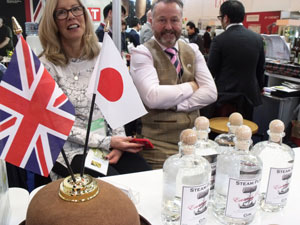
Charlie Gibbs (right), managing director of Steampunk Ltd., is bullish about the prospect for premium gin in Japan.
With Japan a major beer-drinking nation, the food and drink exhibition attracted several British brewers, who were keen to point out what they could offer the Japanese market.
“There are some slight variations in the beers in Japan, but basically they are better quality continental European-style lagers”, said Jason Hill, managing director of Cumbria-based Eden Brewery.
“They can be quite drinkable, but they are all so very similar and they lack the hops that give our beers such flavour and character”, he continued. “That is what this market is really missing”.
And while he admitted that the tastes and textures of the 7.8% Hop Rokket and the slightly weaker Atomic Blonde and Dynamite IPA “might not be for everyone in Japan”, most industry people Hill had spoken with at Foodex had been “very positive”.
“I have been talking with representatives of one of the big, high-end supermarket chains here and they like what we do, although many of the buyers here do seem a bit focused on craft beers, which the UK market has moved on from”, he said. “We’re talking about organic beers and gluten-free varieties and I just get the impression that they’re still a few years behind Britain when it comes to beer”.
The trick, he believes, will be to find the right wholesalers and retailers willing to get ahead of the curve in terms of drinking trends by stocking Eden Brewery beers.
Another approach that may very well pay off, Hill believes, is to tie up with a locally based brewer that has a similar philosophy on real ales. With that in mind, Eden Brewery is working with Dan Cockburn, founder of Hakuba Brewery. They are close to perfecting their first collaboration, called Yuzu Juice IPA—a clever combination of a well-hopped pale ale with one of Japan’s favourite citrus fruits. And plans are already under way for the next Anglo–Japanese brew, the Tokyo Express Green Tea ale.
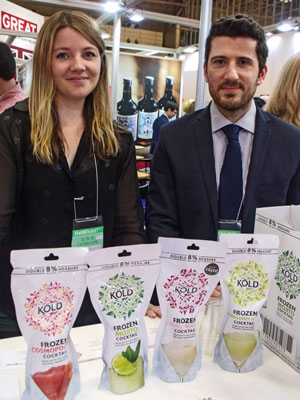
Tori Carlaw and Nick Sotiropoulos of KÖLD Cocktails
Also present were a range of brands showcasing their take on one of the UK’s quintessential drinks—gin.
Luke Smith, founder and head distiller of the Poetic License Distillery in Sunderland, was one of several exhibition participants paying their first visit to Japan. He expressed confidence that the global craze for gin would soon land in Japan.
“Gin has kicked off in a really big way because, for the consumer, it’s a very easy drink to understand”, he said. “It’s much more straightforward than whisky and the style of drinking gin is much more accessible. Add some tonic and you can’t go wrong.
“However, there is gin and there is premium gin and we use a number of ingredients, such as Persian dried lime, green cardamom and lots of juniper, that make our gins stand out”, he said. And then, just to add another element, the gin is barrel aged in oak sherry casks.
“And as soon as any barman worth his salt opens a bottle of this”, he said, hefting a bottle of Old Tom 1800s-style gin, “he can smell what’s in it and knows that it’s going to be good”.
Smith admits that the firm is in its infancy—a mere 18 months old—and would find it very difficult to crack the Japanese market without a good amount of local assistance. For that reason, he was hoping that attending Foodex would help introduce him to a Japanese distributor “who would feel as passionately about the brand as I do”.
Another premium gin marking its debut in Japan was south London-based Steampunk Ltd., with founder and Managing Director Charlie Gibbs equally bullish about the market for a drink that is quintessentially English.
“Globally, gin is the fastest-growing drinks sector and there is worldwide demand for premium, craft gin as consumers reject the mass-produced stuff”, he said, pointing out that the “big boys” of the industry have clearly seen the emerging trend. Beam Suntory Inc., the third-largest spirits firm in the world, shelled out an undisclosed sum—thought to be as high as £50 million—for London gin maker Sipsmith, just eight years after the brand was founded.
Steampunk Gin—crafted with no fewer than eight botanicals from around the world—was awarded a gold medal at the 2016 Gin Masters awards, while the Northumberland-based firm also produces “rascal strength” Steampunk Pirate, Hexham Premier Cru and a pair of tipples named after Victorian-era fans, Florence Parma Violet and Prudence Rose Petal.
Holding its own alongside the traditional was the innovative, evidenced by Köld Cocktails’ selection of four frozen products—cosmopolitan, mojito, lychee and elderflower martinis—that come in pouches that the consumer pops in the freezer at home.
“We commissioned research last year and learned a lot about the Japanese market”, said Sales Director Tori Carlaw. “Armed with that knowledge, we redesigned our packaging, which also allowed us to bring down the price point for the same 250-ml pouches.
“And now we are getting a good amount of interest, and the people who are stopping to speak are exactly the ones we want to talk to about the product”, she said. Ideally, Köld will find an importer or retailer ready to put the cocktails on their shelves.
“The research has shown that, along with Australia, Japan is the biggest market for home-use, ready-to-drink cocktails”, said founder Nick Sotiropoulos. “We’re looking to get into the mass market and we do believe that the quality of the drinks is going to set us apart from the competition, because there is already lots available in the ready-to-drink sector, but the quality is quite low”.
No food and drink show in Japan would be complete without a selection of Scotland’s most famous liquid export, with kilt-clad Jan Beckers predictably busy talking to a steady stream of whisky fans.
“Quite a lot of people already know our products, but it is still very important for us to be here, because Japan is an important market”, said Beckers, who is originally from Belgium but now revels in the title of Global Malt Ambassador for Glasgow’s Douglas Laing & Co., Ltd.
“The Japanese are obviously big fans and they are very knowledgeable about their whiskies, but they can also be a bit old-fashioned because they still tend to ask for a single malt when there are a lot of really good blends out there now”, he said. “So I am here to strengthen our image, but also to get across what they might be missing out on if they only stick to single malts”.
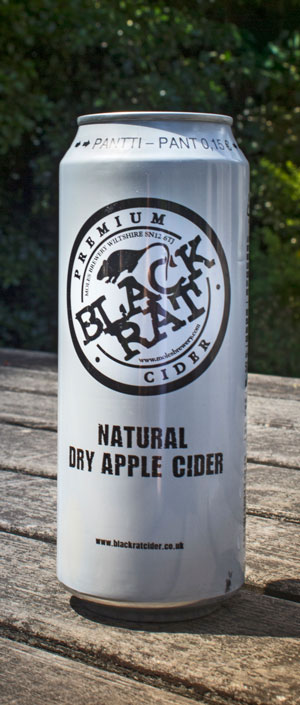
Cider is another drink that is catching on in Japan.
Within the past couple of decades, cider in the UK has undergone a transformation in its image, from the cloudy concoction sold in plastic pitchers by farmers in Somerset to a bottled tipple that is no longer out of place in trendy bars the length and breadth of the country.
And now, according to a group of aficionados who know a Bulmers from a Black Rat cider, it is Japan’s turn.
“Cider has become a much more sophisticated drink in the UK now, and there are three cider or beer producers starting up every week, meaning there are some phenomenal ciders coming onto the market”, said Clive Poole, owner of the Full Monty Pub in Yokohama, which specialises in imported ciders.
“When I first opened a bar 14 years ago, we only had Blackthorn cider, but it quickly became very popular with Japanese drinkers”, he told BCCJ ACUMEN. “We pushed it and when we opened the new bar five years ago, we decided to really focus on cider and that has paid off”.
Poole, who in mid-March at a pub in Roppongi attended a tasting session, backed by the British Embassy Tokyo, has around 20 ciders available at any one time and also imports other labels for retailers, restaurants and bars in the Kanto region.
And the taste, he says, is catching on.
“Most people think cider is apple juice, so at first we have to explain a little bit and get them to try a couple”, he said. “I usually give them an Aspall at first because it is carbonated and easy to drink, and then we introduce them to something else.
“It really is an education process, but I think the potential in Japan is just huge”, he added.
Indeed, Japanese apple growers are being encouraged to try their hand at cider making by various regional governments, such as that of Aomori Prefecture.
Marie Tanaka, a sommelier and owner of the Wine Styles shop in Tokyo’s Taito Ward, was bitten by the cider bug when her husband was posted to London by his firm. She now imports 10 varieties of cider and perry, the fermented pear beverage.
“I’m a huge anglophile and we started out by importing English wines, but it was very difficult to sell them at an appealing price”, she admitted. “I was wondering how we might be able to expand, when I found another supplier who was making cider with apples from his own orchard”.
The imports were an immediate hit.
“Young people in Japan can’t drink much alcohol and many complain that it is too strong or tastes bitter”, she said. “But cider has a lower alcohol level than wine, is easier to drink, and women like it because apples are healthy and have lots of vitamin C”, she said.
And frequently, after a young woman orders a cider, her boyfriend will try it and order the same.
Prize
BCCJ ACUMEN has four cans of Black Rat Natural Dry Apple Cider to give away. Send your entry to: publisher@custom-media.com. The winners will be picked at random.
Crafting a niche
By Chris Russell
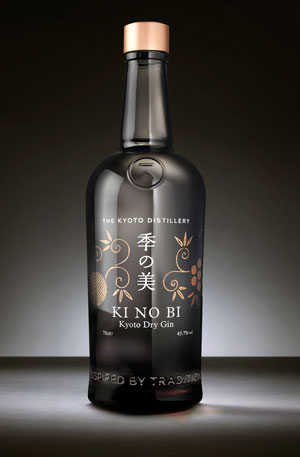 Just because a gin doesn’t originate in the UK doesn’t mean it is without a strong British influence. Last year, The Kyoto Distillery, which was founded by British partners and is overseen by Head Distiller Alex Davies, a graduate of the brewing and distilling course at Edinburgh’s Heriot-Watt University, released its first gin, KI NO BI. Incorporating various Japanese ingredients, the Kyoto-made beverage is a good indicator of just how popular craft gins can become in Japan.
Just because a gin doesn’t originate in the UK doesn’t mean it is without a strong British influence. Last year, The Kyoto Distillery, which was founded by British partners and is overseen by Head Distiller Alex Davies, a graduate of the brewing and distilling course at Edinburgh’s Heriot-Watt University, released its first gin, KI NO BI. Incorporating various Japanese ingredients, the Kyoto-made beverage is a good indicator of just how popular craft gins can become in Japan.
“We’ve been overwhelmed by the response to KI NO BI, particularly in light of the fact that it was effectively opening a new category in the Japanese drinks market”, said David Croll, chief executive officer of The Kyoto Distillery. “Domestic demand started strongly and has got stronger, meaning we’ve had to put a block on opening any new export markets for the rest of this year”.
The firm is now planning to expand its range of products, particularly as major Japanese producers are making moves into the sector, which Croll expects to help drive interest even further. The Kyoto Distillery has already launched two limited-edition products—KI NO TEA, which was inspired by the teas of the city of Uji, and a navy-strength version of KI NO BI—and it is a direction the firm is looking to explore even further.
“We are investing in more distilling equipment this year, but actually to help us get smaller”, Croll explained. “With our current set-up, we need to utilize all capacity fully, but we would love to have the luxury of being able to look at very, very small, very bespoke batches. I’m talking maybe a few dozen bottles.
“Japan is blessed with an abundance of wonderful ingredients just itching to see the insides of our gin stills”.
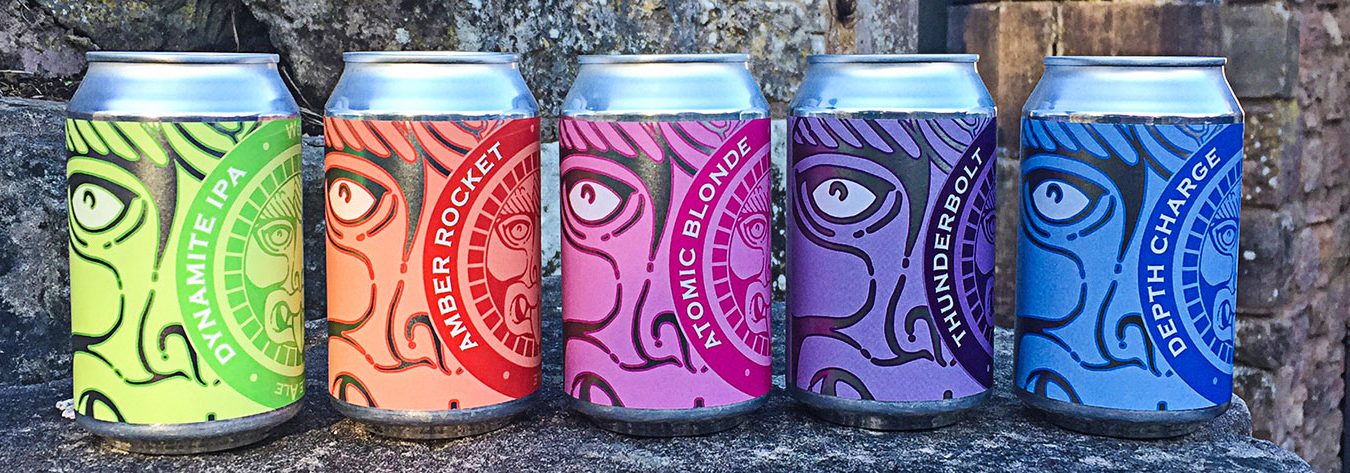

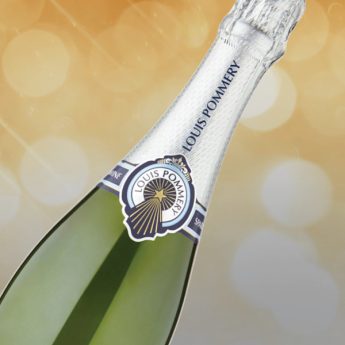

-2-100x100.jpg)
